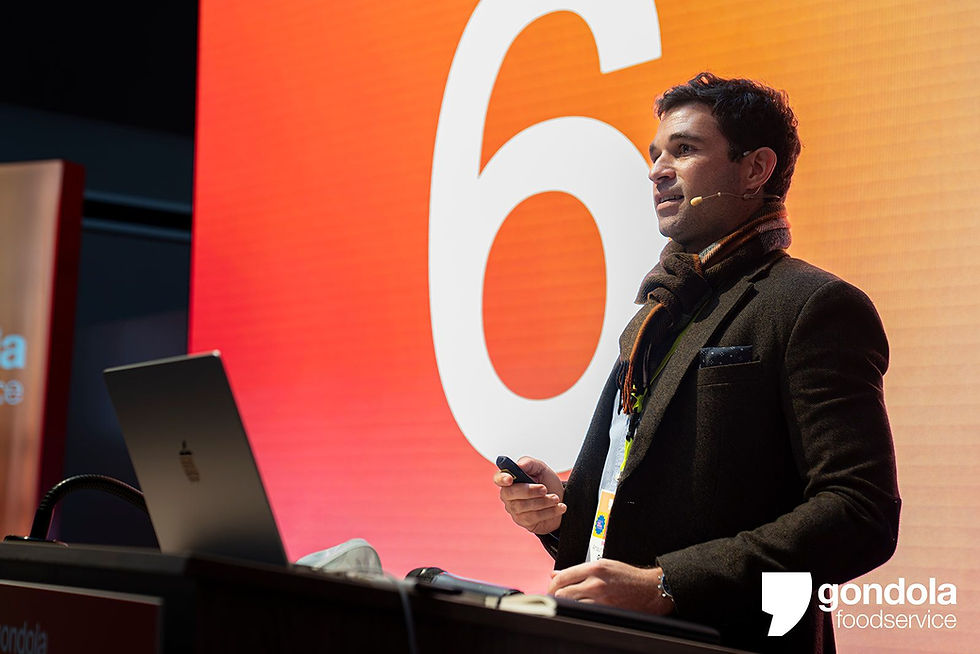The End of Tero Restaurants: A Too-Virtuous Model in a Fragile Industry?
- François Remy

- Oct 16, 2025
- 4 min read
With the announcement on Wednesday of the closure of its Brussels restaurant, Belgian multi-service group Tero is walking away from one of its foundational pillars: sustainable, locally sourced dining rooted in the “farm-to-fork” philosophy. The move follows the shutdown of its Bierges location last year and signals a strategic shift – raising broader questions about the viability of such an idealistic model in the challenging hospitality sector.

“After more than eight years, we’ve made the difficult decision to close our restaurant. Our final service will be held on December 19,” co-founder Arthur Lhoist said in a video statement delivered from inside the soon-to-close Brussels location. Filled with emotion and gratitude, Lhoist described the closure as “the end of a fantastic chapter.” The property at 1 rue Saint-Bernard in Saint-Gilles will soon be transferred to new operators, though the company is not exiting hospitality altogether. Tero will continue to operate Bistro Pilko in Waterloo, Bistro 17 in Luxembourg, and the well-known Knokke Out bar and restaurant.
“Tero Brussels was never just a restaurant. It’s where the group’s values came to life: sustainability, conviviality, and meaning,” Lhoist reflected in his brief address. “Those same values now inform all other areas of the group, from our farms and butcher shops to our catering operations, events, and venues throughout Belgium and Luxembourg.”
Rather than a retreat, the group frames the closure as part of an “ongoing transformation.” Helmed by Arthur, now Chief Impact Officer, and outgoing CEO Nicolas, who is transitioning to Executive Chairman, the family-owned company reiterated its long-term strategic focus.
The Lhoist brothers continue to champion what they call the broader “Tero ecosystem.” While winding down select restaurant operations, they are doubling down on four core business pillars: Events, with tailored corporate and private experiences, including teambuilding; Venues, a network of premium locations from Knokke to Luxembourg; Food, including the Teroir supply chain and catering arm; Sports, encompassing infrastructure and academy-style offerings.

Knowing When to Retrench is a Mark of Corporate Responsibility
The announcement by Arthur Lhoist was preceded by a formal press release, framed primarily around the group's values and continuity. While the full picture may become clearer in direct discussions away from the media noise that might suggest an admission of failure, the tone invites a closer reading of underlying economic and strategic realities.
“Closing Tero Brussels is our way of taking corporate responsibility in response to shifting societal dynamics,” Lhoist stated in the media communication. In any entrepreneurial journey, some choices lead to success while others offer lessons. Failure is not inherently a mistake, it’s a step on the path. In that sense, each closure can be the fertile ground for a more sustainable evolution.
Notably, the group was more pragmatic about the reasons behind the July 2024 shutdown of Tero Bierges, citing the long tail of the COVID-19 crisis as a major factor that upended profitability across the hospitality industry. This time, however, no direct mention was made of any potential pandemic after-effects for Tero Brussels, even though market conditions could be a major contributing factor (shifting consumer habits, declining foot traffic, sectoral instability, etc). Other restaurants have, naturally, managed to turn the tide against all odds, feeding hopes of a medium-term sectoral recovery.

Structural Headwinds and Challenges
“In a demanding hospitality horeca context, Tero is choosing consistency over compromise, refocusing efforts where its impact is greatest," the announcement regarding the Saint-Gilles location notes, without further elaboration. In Bierges, customer loyalty and a high-quality offering were no longer sufficient to keep to balance the books. The same economic pressures likely played a role in the fate of the Brussels outlet.
Added to this is a generalized post-Covid problem in the horeca sector: staffing difficulties, both in recruitment and retention, not to mention the high cost of labor in Belgium. While unaddressed, did these factors also affect Tero Brussels and weigh on the decision?
At the time of the closure of the Walloon Brabant establishment, the capital's restaurant was still being positioned as the group's strategic priority. Bierges, located in the business zone of Wavre, was contrasted with the highly sought-after spot of Tero Brussels, a stone's throw from Avenue Louise. But could this bustling area also have been hit by changes in urban traffic, high rents, and a drop in customer flow?
Not to mention a decisive factor, Brussels also faces a unique structural challenge: its hospitality density is among the highest rates in European capitals, with 31.8 establishments per square kilometer. While this reflects the city's rich culinary culture, it also speaks to an extremely fragmented and competitive market, where numerous players vie for a limited customer base.
Now, a year later, the Brussels site will disappear as well. A seemingly minor news item that opens up a broader strategic question: is the Tero restaurant model sustainable at all, in any configuration?
Is the "Farm-to-Fork" Model Too Labor-Intensive?
These successive closures are not isolated incidents. They appear to underscore the structural challenges and profitability constraints facing restaurants in general and particularly those operating under the ambitious “farm-to-fork” model. This logistics-heavy philosophy is built around Tero’s own farms (branded “Teroir”), seasonal and local sourcing, and skilled labor for a sophisticated culinary offer. By design, this model likely carries higher fixed and variable costs than traditional restaurants. To offset these, Tero would have needed to drive higher-than-average volume or justify premium pricing – akin to a Michelin-starred establishment.
Even with its ethical appeal, the cost structure appears theoretically demanding and potentially difficult to maintain, especially in a city setting. It is plausible that the average per-customer spend was insufficient to cover expenses (Brussels rent, wages, local/organic raw materials).
Though not framed this way by the group, Tero’s strategic pivot clearly moves toward B2B, event-driven, and multi-service models, which are more "scalable" and profitable than traditional dining. Events, catering, and venue management allow for greater flexibility in pricing and volume, better absorbing the additional costs of quality and sustainability.
When the company says that "the experience lived in Brussels has nourished the entire Tero ecosystem," it’s clear the restaurant venture was not in vain, as it effectively served as a laboratory, a meeting place, and a platform for establishing the brand and its values. That mission may now be complete, judged too costly or risky to justify further investment, and giving way to more promising growth opportunities.











